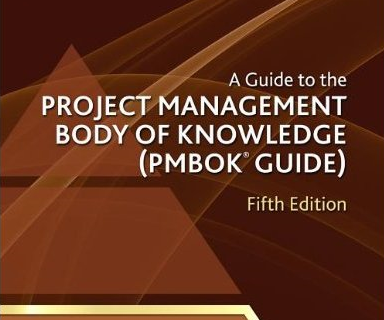
Regardless to the size and domain of the project, it is a temporary team endeavour, operated in an integrated environment with resource constraints and multiple stakeholders. Such intricacies require project managers to think beyond the traditional approach of building and managing a schedule. You need to consider multiple project variables like Cost, Time, Scope, Quality, Stakeholder’s expectations, Contractors, Vendors, Risks, Issues etc., to successfully control the outcome of the project and achieve its objective. The Project Management Body of Knowledge (PMBOK) attempts to define this unified approach to project management.
The PMBOK framework provides a set of guidelines and processes that are drawn from global experience in many varied sectors and industries. Therefore it is generic and can be applied for general use on all types of projects. The PMBOK provides a standard structure and format that can be integrated with your company’s processes for improved transparency and governance.
The PMBOK framework recognizes 5 basic process groups (life cycle) and 10 knowledge areas typical of almost all projects. These five process groups are as follows:
- Initiating: Starting a project by establishing the project charter and authorisation for the project. This is a process to establish the need for a particular project and then the decision that the project will begin.
- Planning: Creating the work plan, identifying activities; developing policies, procedures, resource requirements, procurement, logistic and other documentation that define the project.
- Executing: Implementing the work through labour, materials and resources.
- Monitor & Controlling: Progress status tracking, monitoring against the original plan and taking remedial actions wherever necessary to keep the project on track.Closing: Formal acceptance of the product and documentation by client and stakeholders, formalising any warranty, service or client handovers, documentation and summary of lessons learnt throughout the life of the project.
The five process groups are integrated with each other and overlap and interact throughout a project.
The ten knowledge areas recommended by the Project Management Body of Knowledge are as follows:
- Project Integration Management
- Project Scope Management
- Project Time Management
- Project Cost Management
- Project Quality Management
- Project Human Resource Management
- Project Communications Management
- Project Risk Management
- Project Procurement Management
- Project Stakeholders Management (added in 5th edition)
Each of the above ten knowledge areas accommodates the processes that need to be accomplished within its discipline
The PMBOK® Guide has undergone various revisions. The latest edition is the 5th edition.
To conclude, the PMBOK® Guide provides you a disciplined approach to manage your projects
